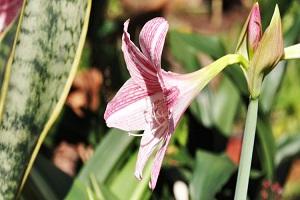Can You Water Plants with Ice?
When it comes to watering plants, gardeners typically reach for the watering can or hose. However, some people may wonder if watering plants with ice is a viable option. While it may seem unorthodox, watering plants with ice has its benefits and drawbacks. Here, we'll explore whether this method is safe and effective for plants.
The Pros of Watering with Ice
One major advantage of watering plants with ice is that it provides a slow and steady release of moisture. As the ice melts, the water slowly seeps into the soil, ensuring that the roots receive a consistent amount of moisture. This is especially useful in hot, dry climates where watering needs to be frequent but not excessive.
In addition, watering plants with ice can help prevent overwatering. Using a watering can or hose can easily lead to overwatering, and excess water can lead to root rot or other issues. By using ice, you're giving the plant a measured amount of water that won't flood the roots.
The Cons of Watering with Ice
While there are benefits to watering plants with ice, there are also some downsides. One major drawback is that ice can damage leaves and stems in extreme temperatures. If you're using ice to water plants in the middle of a heatwave, the sudden temperature change can shock and damage the plant. Make sure to avoid using ice if temperatures are too high or too low.
Another downside is that the slow release of water can be a double-edged sword. While it can prevent overwatering and provide consistent moisture, it can also lead to under-watering. If the ice is taking too long to melt or the plant is in a humid environment, it may not receive enough water to thrive.
When to Water with Ice
So, when is the best time to water plants with ice? Generally, this method is best used in moderate temperatures or as a supplement to traditional watering methods. If your plants are showing signs of wilting or dehydration and you're concerned about overwatering, watering with ice can provide a safe and effective solution. However, make sure to monitor the temperatures and the amount of water the plant is receiving to ensure it's getting enough water.
The Verdict
Overall, watering plants with ice can be a useful technique, but it's not a one-size-fits-all solution. As with any watering method, it's important to consider the plant's individual needs, the temperature, and the amount of water necessary for growth. While ice can provide a slow and steady release of moisture, it can also have negative impacts on the plant in extreme temperatures. Ultimately, whether or not to water plants with ice is a decision each gardener must make based on their plants' needs and their individual growing conditions.

 how many times do yo...
how many times do yo... how many planted tre...
how many planted tre... how many pine trees ...
how many pine trees ... how many pecan trees...
how many pecan trees... how many plants comp...
how many plants comp... how many plants can ...
how many plants can ... how many plants and ...
how many plants and ... how many pepper plan...
how many pepper plan...































